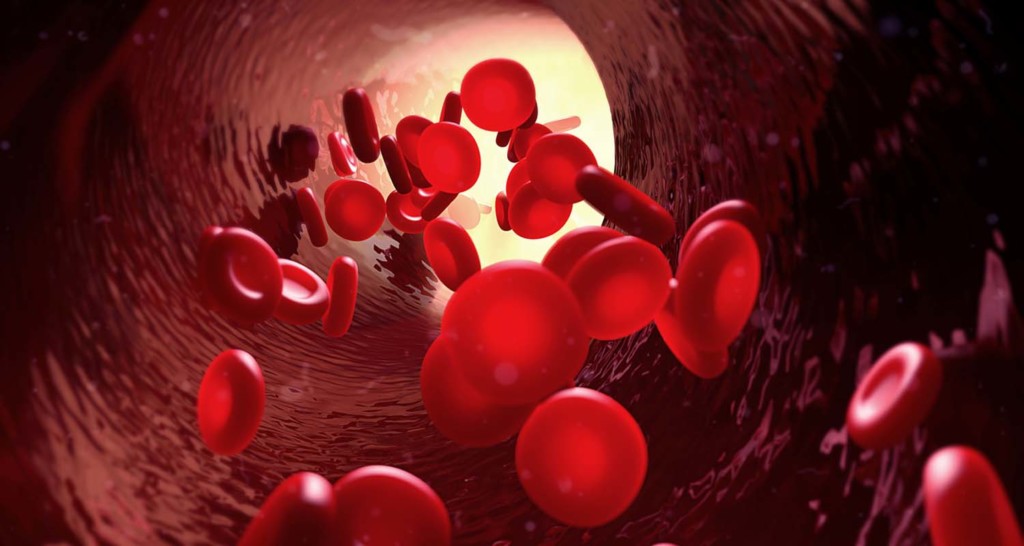[tldr]
- Lyme disease is tough to diagnose. Because of the current accepted protocol, and maybe a little insurance industry meddling, doctors diagnose Lyme disease as other conditions or miss it entirely.
- Lyme disease is the most common disease in the United States that you can get from a bug bite.
- The tick-borne disease is caused by the bacterium Borrelia burgdorferi, a spirochete (spiral-shaped bacterium) and can cause symptoms ranging from a rash to arthritis to facial paralysis and more.
- Read on to find out why there’s controversy around diagnosis and treatment, and what to do if you think you have Lyme disease.
[/tldr]
When I was in my 20s and started doing my own research to figure out what was wrong with me, I brought my symptoms to my doctor and I found that they matched closely with Lyme disease, and a few other things. He told me that I wasn’t trying hard enough, and I fired him. Soon after, I found out that I had Lyme disease, mold toxicity, leaky gut, and more.
Lyme disease is incredibly frustrating to deal with, both for patients and medical professionals. A big reason is it’s tough to diagnose. Because of the current accepted protocol, and maybe a little insurance industry meddling, doctors diagnose Lyme disease as other conditions or miss it entirely.
Here’s how it typically goes:
Scenario 1: You go to the doctor thinking you have a handful of Lyme symptoms. Your doctor says no, you’re just tired, achy, brain foggy, numb, or tingly because you’re getting older, you’re a parent, maybe you’re coming down with the flu, or it’s just one of those things that might resolve itself, might not, let’s see what happens? You go home without any blood tests or follow-up of any kind, wondering what the heck is wrong with you.
Scenario 2: You go to the doctor because you just pulled a tick off of your belly. So, doc orders an ELISA blood test. ELISA comes up negative, and doc says, yay! You don’t have Lyme. Except, you do. A few months later, you start getting killer headaches and you can’t fully close your left eye.
Scenario 3: You have chronic Lyme symptoms and you spend a lot of time in the woods. Your doctor orders blood tests, which come back positive for Lyme disease, and she prescribes you a month of antibiotics. You feel a little better right after taking them, but soon you’re back to square one because they didn’t completely eradicate it. (Spoiler: treatment protocols could use an overhaul. More on that coming up.)
What is Lyme disease
Lyme disease is the most common disease in the United States that you can get from a bug bite. Medical professionals and laypeople generally believe that only deer ticks, the ones smaller than a match head, transmit Lyme disease. That’s only part of the story — more on that in a bit. Lyme is caused by the bacterium Borrelia burgdorferi, a spirochete (spiral-shaped bacterium).
Symptoms of Lyme disease
Once infected, you could have every sign of Lyme on the list, or no symptoms at all. Symptoms vary depending on how long ago you were infected, and whether or not it’s localized (at the site of the bite, if there was a tick bite) or disseminated (everywhere in your body).

Initial symptoms of Lyme disease
- Flu-like symptoms, like fever, chills, muscle and joint aches, swollen lymph nodes, etc.
- Erythema migrans: a red skin rash that looks like a bullseye, that starts at the site of the bite then extends outward
Later symptoms of Lyme

A set of symptoms can show up long after the initial infection — days, months, or even years. These are symptoms characteristic of other inflammatory diseases, so it’s easy to mistake them for something else. Symptoms of Lyme include:
- Headaches, migraines
- Dizzy spells
- Joint pain, arthritis
- Muscle pains
- Stiff neck
- Bell’s palsy — mild paralysis of some of the facial muscles, causing droopy mouth, eyes, or cheeks
- Erythema migrans rashes in a circle pattern anywhere on the body
- Heart palpitations
- Shortness of breath
- Inflammation of the nervous system
- Numbness, tingling
- Memory problems
The Lyme disease rash
It’s a common misconception that if you didn’t see a tick and you didn’t get a bullseye, you don’t have Lyme. Truth is, most people don’t see a tick, and a large percentage don’t get a rash. The Centers for Disease Control (CDC) reports that only 70-80% of infected people see the rash. Other sources say it’s 50% or lower. So, the rash isn’t the best indicator.
How do you get Lyme disease? Another spoiler: there’s some controversy
This is where things get sticky.
The most widely held belief is that the only way Lyme is transmitted to humans is through the bite of infected blacklegged ticks.
This is an incomplete understanding. There are documented cases of mothers passing Lyme to their babies during pregnancy, so you have at least one more mode of transmission.[ref url=”http://annals.org/aim/article-abstract/699780/maternal-fetal-transmission-Lyme-disease-spirochete-borrelia-burgdorferi”]
There is some science-backed speculation that Lyme could be sexually transmitted. A collection of epidemiological and immunological studies suggest that humans can give each other the borrelia burgdorferi infection via intimate contact, no bugs required.[ref url=”https://www.medical-hypotheses.com/article/S0306-9877(03)00060-4/pdf”] There are a few reasons some medical professionals are taking note.
First, the bacterium is remarkably similar in structure and function to syphilis, a known sexually transmitted disease.[ref url=”https://www.tandfonline.com/doi/pdf/10.1586/14787210.2015.1081056″] Second, scientists have found Lyme spirochetes (the spiral-shaped bacteria) in all samples of semen and vaginal secretions of Lyme-positive participants.[ref url=”http://www.indianaLymeconnect.org/wp-content/uploads/2015/10/Lyme-as-STD-WAFMR-2014.pdf”] This suggests that there could be some exchange of the bacteria between sexual partners. Whether borrelia survive the transfer and set up shop in the new host is left to be determined.
At this point, sexually transmitted Lyme is only a hypothesis, but the evidence to support it merits some thorough testing.
How do you test for Lyme disease? Yet another spoiler: more controversy

Lyme disease testing could use a major overhaul. Lyme disease is quite sneaky, and since the tests are expensive, the insurance industry’s influence means that not everyone who should get tested will.
The generally accepted testing regimen in the U.S. is: order a blood test called ELISA, then order another called Western Blot if the ELISA is positive.
That’s if you’re lucky enough to get bloodwork, because the tests are pricey and doctors order them sparingly. Insurance companies have been known to give some pushback in covering these tests without the proper presentation of symptoms or tick exposure.
So, if you’re one of the lucky ones with your lab order in-hand, here’s the kicker: the ELISA test has a dreadfully low sensitivity for early-stage Lyme — 30-40%[ref url=”https://wwwnc.cdc.gov/eid/syn/en/article/22/7/15-1694.htm”] — meaning, out of 100 people who have early-stage Lyme disease, the ELISA will catch only 30-40 of them. The other 60 to 70 will go home thinking they’re disease-free, and they won’t get the immunoblotting (Western Blot) test.
It goes up in sensitivity once the disease disseminates throughout your body — up to 70-100% — but you run into problems there because you want to treat it early before it takes over.
A more accurate Lyme disease test is the MELISA, which involves radioactive blood cell counting.[ref url=”https://www.ncbi.nlm.nih.gov/pubmed/16876371″][ref url=”https://www.ncbi.nlm.nih.gov/pubmed/25664127″] This isn’t a common one in practice, so you might have to follow the references and bring the abstracts to your doctor to make your case for getting that test over the standard protocol.
Is Lyme disease curable? You guessed it…more controversy
Standard practice to treat Lyme disease is antibiotics.
If you were one of the ones with convincing-enough symptoms or tick exposure and you got a blood test, and if you were one of the 30% whose early-stage, localized Lyme disease elicited a positive result (both big ifs), you can probably take a few weeks of antibiotics and call it good.
If you were one of the ones whose Lyme disease disseminated throughout the body, antibiotics might work, they might not. Your doctor might try oral antibiotics first, then IV antibiotics if that fails. Some cases are so severe that people go in for routine IV antibiotics just to periodically drop spirochete counts and give you some relief, but it doesn’t completely eradicate the disease.
Frequent antibiotic use has its own set of problems — it wrecks your gut, so if you need them, you want to use them judiciously and take steps to fix your gut afterward.
The Lyme disease-immune system connection
A tip-top immune system will fight Lyme disease for some time, and some say that your body will eradicate the disease on its own (again, more controversy!). Problem is, Lyme disease spirochetes are shaped like drill bits on purpose. They screw themselves into your white blood cells, which causes a dysfunctional immune system.
So, it’s a matter of who’s winning, and whether or not your immune system can keep up to keep Lyme down before the disease drills itself into the driver’s seat.
When your immune system has to fight something else, like another infection or mold toxins from your home, you don’t have as many resources to devote to fighting Lyme disease. So, chronic Lyme comes into play.
Lyme disease prevention and treatment
How to prevent Lyme disease

Until the mode of transmission is fully understood, you can’t settle on concrete steps to prevent Lyme disease. What if you got it from your mama before birth? From your spouse? There are a lot of unknowns.
Since you know about ticks, take steps to prevent tick bites. Wear hats in the woods to keep them out of your hair where you can’t see them. Do a proper tick check when you come back in from the great outdoors:
- Keep a comb in the car and do thorough tick checks on yourself, the kids, and the pets before you head home.
- Thoroughly check any gear you took with you.
- Look for ticks on clothing.
- Keep the dog’s hair short in the summer so you can easily check her for hitchhikers.
- If your zoning allows, get some guinea hens. They love to eat ticks and they’ll provide eggs if you keep them happy enough.
Another big one is to keep your immune system strong. That way, if you’re exposed, your own body can keep ahead of it. To strengthen your immunity:
- Get toxins out of your world. It’s not realistic to remove them all, but there’s a good chance you can make a few easy changes to greatly reduce your toxic load.
- Eat foods that feed you on a cellular level. The green-zone foods on the Bulletproof Diet Roadmap are low-toxin, nutrient rich and taste amazing.
- Keep your gut bacteria in check. Here’s how.
How to treat Lyme disease
Were you diagnosed with Lyme disease? Here are some things that people report worked for them.
Bind toxins from fat
Lyme spirochetes make a toxin that dissolves in your fat tissue, and it can take a long time to get it out. There are a few things that help here.
- Prescription bile-binding agents (cholestyramine and others) stick to fats and pull them out of your system
- Activated charcoal also helps draw the toxins out
You can get a genetic test to see how well you metabolize fats. Another thing to keep in mind is that your brain is almost all fat, so it’s especially vulnerable to Lyme disease.
Ozone therapy for Lyme disease
In my experience, 18 months of ozone therapy was the magic bullet against Lyme disease. Ozone inactivates bacteria, viruses, fungi, yeast and protozoa by breaking through the cell wall which weakens the cell, making way for your own immune cells to move in and do their thing. It also uses extra oxygen to activate the immune system.[ref url=”https://www.ncbi.nlm.nih.gov/pmc/articles/PMC3312702/”] You’ll need a functional medicine doctor to put you on a program.
If you’re frustrated by Lyme disease or any chronic illness, join the club. But, don’t stay for long. The best thing you can do is arm yourself with information and seek the guidance of medical professionals who are qualified and experienced in treating the tough stuff. It takes work, but you’ll come out on the other side stronger than ever.
